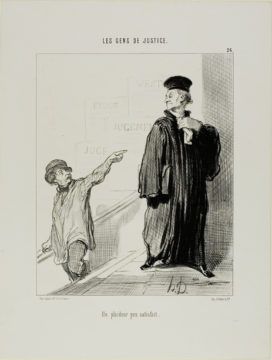by Joseph Shieber

Suppose you had a friend whom you knew to be a lover of good coffee. You ask him how he likes his coffee machine and he replies that it’s okay. He emphasizes that one of the best features of the coffee machine is that it’s extremely reliable; each cup of coffee is the same as the last.
Curious, you ask your friend to brew a cup for you. After taking a sip, you exclaim, “Ugh, this tastes awful.”
“Yes,” your friend replies, “but at least it’s consistent.”
You’d likely think that such a response was crazy! Presumably, if given a choice between a machine that consistently produces bad cups of coffee and a machine that is inconsistent, but that at least occasionally produces good cups of coffee, anyone would choose the inconsistent machine. At least it gives you the CHANCE of getting a good cup of coffee!
Despite the seeming sensibleness of this view, it is surprisingly hard to keep its lesson in mind – for me no less than for others.
I was mindful of this as I read Liza Batkin’s essay, “The Kingdom of Antonin Scalia,” in The New Yorker.
Batkin’s work is only the latest in a long line of think-pieces charging that the Supreme Court’s now-ascendent conservatives aren’t true to their own espoused doctrines, but only apply those doctrines consistently when they yield their preferred political outcomes (examples of this style of piece go back, in my recollection, at least as far as Bush v Gore).
Batkin glosses the explicit doctrine to which the Court’s conservatives swear allegiance under the heading of Antonin Scalia’s notion of “originalism”:
Originalism, which bound judges to historical evidence of the Constitution’s original meaning, was part of Scalia’s plan to restrain them. “I have my rules that confine me,” he said in one appearance on C-span. “When I find it, the original meaning of the Constitution”—and here he pressed his palms together tightly, like a prisoner in shackles—“I am handcuffed.”
Scalia also advocated for judges to develop strict rules that would tie them down rather than flexible standards that called on courts to balance interests and weigh various factors. “If the next case should have such different facts that my political or policy preferences regarding the outcome are quite the opposite,” he wrote in a 1989 article called “The Rule of Law as a Law of Rules,” “I will be unable to indulge those preferences; I have committed myself to the governing principle.”
Where Batkin finds fault with the Court’s conservative majority, however, is in its errancy. The conservatives on the Court, confident in their 6-3 majority, no longer need to “shackle” themselves by the very originalism to which they still pay lip-service:
While using Scalia’s language, the Court is also erring from his commands. Originalism limits judges to considering only what the Constitution meant when it was ratified. It is precisely the narrowness of this historical analysis that is supposed to discipline them. But during this past term the Justices, as they gestured at the importance of originalism, wandered more freely about the archives and plucked from centuries-old sources without tying them to what the drafters or ratifiers thought. Though in Dobbs the Court relied on eighteenth-century precedent, it also cited British cases dating back to the twelve-hundreds and laws up to the nineteen-sixties. When so much is fair game, history lends itself to all the manipulations Scalia wanted to avoid.
I understand the appeal of such criticisms. The advantage – perhaps particularly for journalists in our “both-sides” era – is that you can criticize a decision without having to give an opinion on whether the outcome of that decision itself is correct. It allows for the possibility, in other words, of value-neutral critique.
The journalist deploying this strategy needn’t say, for example, that abortion should be legal, that the federal government should be able to enforce environmental regulations, or that voters are entitled to a government that represents them proportionally. She just needs to point out that those decisions are inconsistent with the justices’ stated judicial philosophy!
I also understand this appeal on a more visceral level. My initial reaction to such cases often also involves the same sort of knee-jerk disgust: but that’s inconsistent with justice X’s own stated preference for the judicial decision-making process!
The problem with such a reaction, however, as the example of the consistently bad coffee-maker illustrates, is that it doesn’t really make sense.
If given a choice between a justice who consistently applied a philosophy that led to bad results and one who was inconsistent, but whose inconsistency led – at least occasionally – to better outcomes, I’d choose the latter justice. Just like in the case of the coffee-maker.
What this suggests is that consistency isn’t of value, in and of itself. If the outcomes are bad, the fact that they were arrived at by employing a consistent decision-making process doesn’t improve the outcomes themselves at all!
If this is correct, though, then my initial inclination – and the obvious inclination of scores of “both-sides” journalists – is misguided. When criticizing judicial (and, more broadly, political) decisions, we cannot avoid assessing whether the outcomes of those decisions are good. We cannot, in other words, avoid considerations of value.
To paraphrase Barry Goldwater – in a way that would make him spin in his grave! – inconsistency in pursuit of the correct policy outcome is no vice, and consistency in pursuit of the incorrect policy outcome is no virtue.
